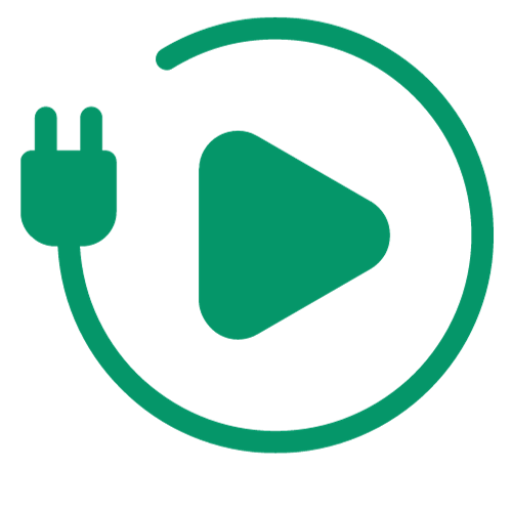In the digital age, ‘blog’ has quietly transitioned from a humble web log to a powerhouse of content creation and dissemination. You may think you know what a blog entails, but the journey from its acronymic roots to its current form is both fascinating and revelatory.
As we peel back the layers, you’ll discover how blogging has morphed into a critical tool for communication, influence, and even income generation. This exploration will not only clarify the term but also highlight its undeniable impact on today’s world.
Stay with us to uncover the full scope of blogging’s evolution and its significance in the digital ecosystem.
Table of Contents
Key Takeaways
- ‘Blog’ is derived from ‘web log’, reflecting its origins as an online journal.
- Blogs have democratized information, allowing anyone with internet access to share their voice.
- They have evolved from personal diaries to platforms influencing public opinion and social change.
- Today, blogs are vital for businesses, individuals, and driving diverse perspectives in the digital landscape.
What Does Blog Stand For
The term ‘blog’ originated in the late 1990s as a contraction of ‘web log,’ revolutionizing how we share and consume information online. Imagine a world where your voice, regardless of who you’re or where you’re from, can be heard globally.
That’s what blogs did. They democratized information, giving rise to a new era where anyone with access to the internet could become a blogger, sharing insights, stories, and information with a potentially vast audience.
You’re no longer just a passive consumer of news and stories crafted by a select few; blogs have handed you the power to contribute, to become part of the global dialogue.
Whether you’re passionate about travel, cooking, technology, or anything in between, there’s a space for you in the blogging world. The impact of this shift is profound. Blogs haven’t just altered the landscape of information sharing; they’ve created communities, fostered relationships, and even launched careers.
From Weblog to Blog
Exploring how ‘weblog’ evolved into ‘blog’ reveals a fascinating journey in the digital world’s lexicon. Initially, ‘weblog’ perfectly encapsulated the essence of logging the web, serving as an online diary or journal where individuals could chronicle their daily lives or share insights on various topics.
However, the internet’s fast-paced evolution demanded not just innovation in technology but also in language. The transformation from ‘weblog’ to ‘blog’ wasn’t just about saving time or breath; it signified a shift in how we perceive and interact with these digital platforms.
You see, shortening ‘weblog’ to ‘blog’ did more than drop a few letters; it made the concept more accessible and less intimidating to the average internet user. This linguistic simplification paralleled the democratization of content creation, enabling anyone with internet access to share their thoughts, expertise, and experiences.
The transition from ‘weblog’ to ‘blog’ wasn’t merely a convenience—it was a catalyst that propelled the blogging movement forward, making it an integral part of the digital landscape. As ‘blog’ became a household term, the barrier to entry lowered, inviting a wave of diversity in content that continues to enrich our online world today.
Blogging’s Early Days
Diving into blogging’s early days unveils a pioneering era where enthusiasts paved the way for the digital storytelling revolution we’re part of today. Imagine a world before social media, where sharing your thoughts with a wide audience wasn’t just a click away.
Early bloggers were trailblazers, setting the stage for what’s become a fundamental part of our digital lives. They didn’t have the sleek platforms you’re accustomed to now. Instead, they showed true grit, often coding their sites from scratch, to share their passions, insights, and daily lives with anyone willing to read.
You might think this was a niche hobby for tech enthusiasts, but it quickly grew beyond that. These pioneers proved that there was a hungry audience for personal stories and expert analyses outside mainstream media channels. They built communities, sparked discussions, and laid the groundwork for the influencers and thought leaders you follow today.
The Evolution of Blogs
Over time, blogs have transformed from simple online diaries to powerful platforms that shape public opinion and create communities. Initially, you might’ve seen them as personal spaces where individuals shared their daily lives or hobbies.
However, their role in the digital landscape has dramatically evolved. They’ve become a crucial part of the online ecosystem, influencing everything from fashion to politics.
You’re now witnessing blogs as key tools for businesses and entrepreneurs to connect with their audience, share expertise, and build brand loyalty. They offer a unique way for voices to be heard and stories to be told, transcending geographical boundaries and allowing for a global exchange of ideas.
Moreover, blogs have democratized information, giving power to individuals who previously had no platform. They’ve enabled activists, experts, and ordinary people to share their insights and challenge mainstream narratives. This shift hasn’t only expanded the diversity of perspectives available online but has also fostered a more engaged and informed public.
In essence, blogs have evolved into something far greater than their humble beginnings. They’re now pivotal in driving social change, educating the public, and even affecting policy decisions. This evolution underscores the profound impact blogs have on our world today.
Types of Blogs
Understanding the evolution of blogs sets the stage for a closer look at the various types of blogs that exist today. You’ve seen the journey from online journals to platforms hosting a myriad of voices and topics. Now, it’s time to dive into the specific genres that make the blogosphere so rich and diverse.
Here are three prominent types of blogs you’ll encounter:
- Personal Blogs: The roots of blogging. Here, individuals share their life experiences, thoughts, and passions. It’s storytelling in its purest form, inviting you into the author’s world. You’re not just reading content; you’re connecting with the person behind the words.
- Business Blogs: These are strategic assets for companies. Through these blogs, businesses provide valuable industry insights, company updates, and helpful tips. They’re not just selling a product or service; they’re building trust and establishing themselves as thought leaders in their field.
- Niche Blogs: Focused on specific topics, from tech to travel, food to fashion. Niche blogs dive deep, offering expert advice, reviews, and insights. They’re your go-to for specialized knowledge, helping you explore your interests deeper.
Choosing the right type of blog to follow or create depends on your interests, goals, and the value you seek. Each type offers a unique perspective, enriching the digital landscape.
Key Components of a Blog
To truly grasp what makes a blog tick, you need to unpack its essential components. At its core, every successful blog has a clear, engaging topic or niche. This focus not only attracts but also retains a dedicated readership. You’re not just throwing words into the void; you’re speaking directly to an audience hungry for what you’ve got to say.
Next up is your content. It’s the backbone of your blog, combining informative, valuable posts with your unique voice. Your content must resonate with your readers, providing answers, insights, or entertainment that keeps them coming back for more. Remember, consistency is key. Regular updates signal to your audience that you’re committed and reliable, building a loyal following over time.
Don’t overlook the visual aspect. A clean, user-friendly design makes your blog inviting and easy to navigate. It’s not just about looks; it’s about functionality. Your layout should guide visitors seamlessly through your content, making the journey enjoyable.
Lastly, engagement tools such as comments or social media links encourage interaction, turning passive readers into active participants. This connection is priceless, transforming your blog from a one-way street into a bustling community hub.
The Rise of Personal Blogs
The digital era has catapulted personal blogs into the spotlight, offering individuals a platform to share their unique stories and perspectives with the world. You’ve seen the surge, but have you considered the impact? Personal blogs have become more than just digital diaries; they’re a force reshaping the way we consume information and connect with each other. Here’s why you should take notice:
- Authenticity: In a world saturated with curated content, personal blogs stand out by offering genuine, unfiltered views. You get the real deal – raw emotions, unedited thoughts, and personal triumphs and challenges.
- Niche Communities: No matter your interest, there’s a blog for it. From travel to tech, personal blogs have fostered tight-knit communities where you can dive deep into your passions, finding both information and camaraderie.
- Empowerment: They empower you to become a creator, not just a consumer. By starting your blog, you can carve out your niche, share your knowledge, and even influence trends.
Personal blogs aren’t just surviving; they’re thriving. They offer a unique blend of personal connection and niche content that mainstream media can’t match. In this digital age, they’re not just relevant; they’re essential.
Business Blogs and Branding
While personal blogs offer a window into individual lives, business blogs serve as a powerful tool for branding and connecting with your target audience. They allow you to showcase your expertise, share insights about your industry, and communicate your brand’s values and personality.
But it’s not just about posting content; it’s about creating a dialogue with your customers and prospects, making them feel involved and valued.
You’re not just selling a product or service; you’re building a community around your brand. By regularly updating your blog with relevant and engaging content, you keep your audience informed and interested.
This, in turn, increases your website’s visibility and drives more traffic, potentially leading to higher conversion rates. Moreover, a well-maintained business blog can significantly enhance your SEO efforts, as search engines favor websites that offer fresh and relevant content.
Don’t underestimate the power of storytelling. Through your blog, you can share success stories, customer testimonials, and behind-the-scenes glimpses into your company, making your brand more relatable and trustworthy.
In a world where consumers are bombarded with countless marketing messages daily, a genuine and insightful business blog can set you apart, turning casual visitors into loyal customers.
Blogs Vs. Traditional Media
Blogs offer a dynamic platform that traditional media can’t match, engaging directly with you in real-time conversations. Unlike newspapers or television, blogs provide an immediate connection, allowing for a more personal interaction. They’ve transformed how information is shared and consumed, making it more accessible and relatable.
Here’s why blogs stand out:
- Personalization: Blogs cater to your specific interests. Whether you’re into cooking, technology, or travel, there’s a blog for that. Traditional media often aims for a broad audience, losing that personal touch.
- Interactivity: You can comment, share, and even contribute to blogs. This two-way communication creates a community around shared interests, something traditional media struggles to achieve.
- Up-to-the-minute updates: Blogs can be updated in real-time, providing the latest news and trends. Traditional media, with its longer production cycles, can’t keep up with the pace of today’s world.
In short, blogs offer you an immersive experience that traditional media simply can’t. They’re tailored to your interests, encourage engagement, and provide timely content. It’s clear why blogs have become a preferred source of information for many.
The Impact of Blogs on Society
Shaping societal norms and influencing public opinion, blogs have become a powerful force in today’s digital landscape. You’ve seen their rise, from personal diaries to platforms that challenge mainstream media’s dominance.
They’ve democratized information, allowing anyone with internet access to share insights, critique politics, and spotlight underrepresented voices. This shift has empowered you to seek out diverse perspectives, breaking the monopoly on knowledge once held by traditional gatekeepers.
Blogs have also fostered community and solidarity among like-minded individuals. You’re no longer isolated in your interests or beliefs. Through comments and social media shares, you engage in dialogues, expanding your understanding and empathy. This connectivity has sparked movements, mobilized activists, and transformed personal narratives into catalysts for social change.
Moreover, blogs have tailored content to your unique tastes and needs, making information consumption more personal and relevant. They’ve introduced you to new cultures, lifestyles, and innovations, broadening your worldview without the need to sift through irrelevant or biased news sources.
The impact is clear: blogs have reshaped how you consume information, connect with others, and perceive the world. They’re not just online diaries or platforms for self-expression—they’re tools for societal transformation.
Monetizing Blogs
Having explored the societal impacts, it’s crucial to understand how you can turn your blog into a profitable venture. You’re not just sharing ideas; you’re building a potential income stream. Here’s how:
- Affiliate Marketing: You’ll earn commissions by promoting products or services relevant to your audience. It’s about finding the right partners that align with your content and values. You’re not just selling; you’re solving problems for your readers with products you believe in.
- Sponsored Content: Companies pay you to write about their products or services. It’s essential to maintain transparency and authenticity. Your audience trusts you, so only partner with brands that you’d use yourself. This isn’t just about making money; it’s about keeping that trust intact while monetizing your efforts.
- Selling Digital Products or Services: Whether it’s eBooks, courses, or consulting, your blog is the perfect platform to sell your expertise. You’ve built an audience that values your knowledge. Now, it’s time to offer them more in-depth solutions they’re willing to pay for.
Monetizing your blog isn’t about compromising your values; it’s about leveraging your platform to sustain your passion. Start small, experiment, and find what works best for you and your audience.
Blogging Platforms and Tools
To turn your writing into a powerhouse of engagement and revenue, it’s crucial to choose the right blogging platform and tools. You’ve got a voice that deserves an audience, and picking the perfect platform is your first step towards being heard. Whether you’re eyeing WordPress for its flexibility and control, or leaning towards Medium for its built-in audience, your choice should align with your goals.
Don’t overlook the importance of tools either. SEO plugins, like Yoast, can skyrocket your visibility, while tools such as Canva make your posts visually irresistible.
It’s not just about posting content; it’s about amplifying it. Analytics tools are your best friend here, providing insights into what resonates with your audience, so you can double down on what works. Engage with your readers through comments or social media integration – this interaction is gold.
The Future of Blogging
Now that you’ve equipped yourself with the right tools and platform, let’s explore how blogging is evolving and what that means for you. The landscape of digital content is ever-changing, and staying ahead means adapting quickly and effectively. You’re not just a content creator; you’re a trendsetter and a digital pioneer in a world that thirsts for authenticity and innovation.
Here’s what you need to keep in mind about the future of blogging:
- Personalization is Key: Readers crave content that speaks directly to them. Tailoring your blog to address the specific needs, interests, and challenges of your audience will set you apart. Use data analytics to understand your readers better and customize your content accordingly.
- Multimedia Integration: Gone are the days of text-only blogs. Incorporating videos, podcasts, and interactive media can significantly enhance user engagement. Diversify your content to cater to various learning preferences and keep your audience coming back for more.
- Community Building: Foster a sense of community around your blog. Engage with your readers through comments, social media, and forums. A loyal community not only supports your content but amplifies your reach through word-of-mouth.
Embrace these trends, and you’ll ensure your blog not only survives but thrives in the evolving digital landscape.
Blogs and SEO
Why should you care about SEO for your blog? Simply put, SEO, or Search Engine Optimization, is the key to getting your blog noticed in the vast sea of online content. It’s not just about creating compelling content; it’s about making sure your target audience can find it.
SEO boosts your blog’s visibility on search engines like Google. When you optimize your blog posts with relevant keywords, high-quality links, and a mobile-friendly design, you’re essentially signaling to search engines that your content is valuable and deserves a top spot in search results. This increased visibility leads to more traffic, and more traffic means more opportunities to engage with your audience and build a loyal following.
But it’s not just about attracting any audience. SEO helps you reach the right people at the right time. By targeting specific keywords related to your niche, you’re more likely to attract visitors genuinely interested in your content. This relevance is crucial for not just getting clicks, but also for fostering engagement and conversions.
Building a Successful Blog
Building a successful blog requires understanding that it’s not just about posting content; it’s about crafting messages that resonate with your audience. You’ve got to dive deep into what makes them tick, and then deliver precisely that. It’s a journey where consistency, authenticity, and engagement turn visitors into a loyal community. Here’s how you can make it happen:
- Identify Your Niche: Don’t try to be everything to everyone. Find your specialty and become the go-to source for that topic. Whether it’s tech, fashion, or personal finance, a focused niche attracts a dedicated audience.
- Create Valuable Content: Your readers are looking for content that solves their problems, entertains them, or both. Invest time in creating high-quality posts that provide solutions, insights, or inspiration. Remember, value keeps people coming back.
- Engage With Your Audience: Respond to comments, ask for feedback, and participate in social media discussions. This two-way communication builds a community around your blog, making readers feel valued and part of something special.
Success in blogging isn’t overnight. It’s about putting the work in, day after day, with the confidence that you’re making an impact. Stick with it, and you’ll see your blog grow from a simple platform to a powerful voice in your niche.
Frequently Asked Questions
How Do Intellectual Property Laws Apply to Content Created and Shared on Blogs?
Intellectual property laws protect your blog’s content, ensuring no one else can use your work without permission. It’s crucial to understand these rights to safeguard your creations and respect others’ works online.
Can Blogging Be Considered a Viable Career Path, and What Are the Average Earnings for Successful Bloggers?
Yes, blogging can be a viable career path. Successful bloggers often earn significantly, with income varying widely based on niche, audience size, and monetization strategies. It’s all about dedication and smart marketing.
What Are the Ethical Considerations and Challenges Bloggers Face When Discussing Sensitive or Controversial Topics?
You must navigate ethical minefields carefully when discussing sensitive topics. It’s crucial to balance honesty with sensitivity, ensuring you don’t spread misinformation or harm. Your integrity as a blogger hinges on these decisions.
How Does the Use of Artificial Intelligence in Content Creation Impact the Authenticity and Credibility of Blogs?
You’re facing a dilemma with AI in content creation. It can dilute authenticity and credibility, making it harder to trust what you read. It’s vital to critically assess and verify blogs now more than ever.
What Role Do Blogs Play in Educational Settings, Both as Teaching Tools and Platforms for Student Expression?
Blogs serve as dynamic educational tools, enhancing your learning and offering platforms for expression. They’re pivotal in sharing knowledge, sparking creativity, and fostering dialogue, making them indispensable in today’s learning environments.
Final Thoughts
You’ve journeyed through the history of blogging, from its humble beginnings as a ‘weblog’ to the dynamic platforms we see today. Blogs have transformed digital communication, offering a space for everyone to share their voice.
Whether you’re looking to inform, entertain, or inspire, there’s a blog type for you. With the right tools and SEO strategies, your blog can thrive.
Don’t wait; start your blogging adventure now and make your mark on the digital landscape.


















Leave a Reply